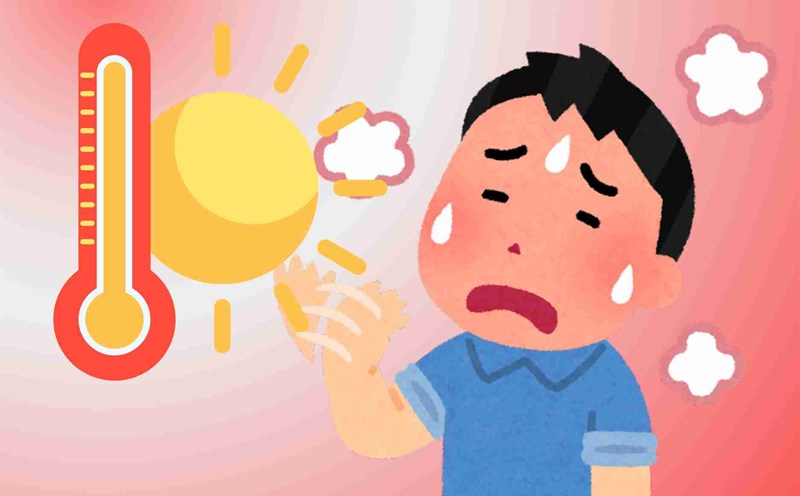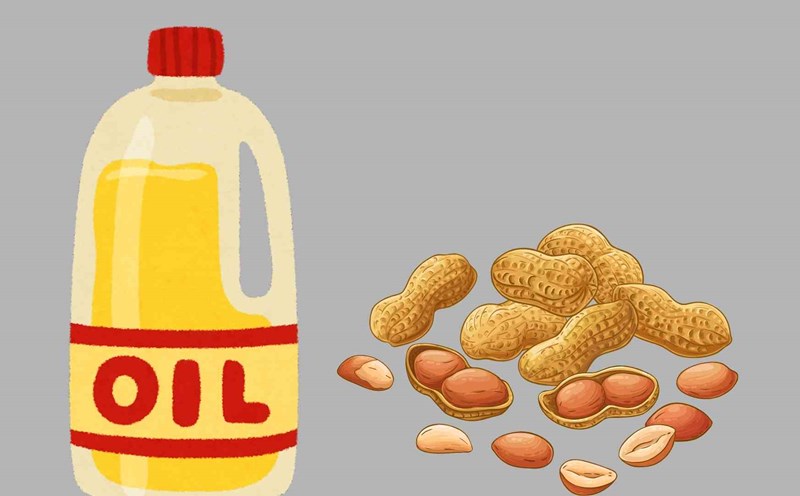The monsoon season not only brings cool air but also comes with high humidity, a seemingly harmless factor but has many potential risks to cardiovascular health. According to health experts, high humidity can cause fluctuations in blood pressure, increase the risk of stroke, water retention in the body and affect eating habits, all of which are adverse factors for the heart, especially in people with underlying diseases.
How does moisture put pressure on the heart?
When the air is humid, the body has difficulty exiting heat because sweat cannot escape. The heart has to pump more blood to the skin to regulate temperature, creating a burden on the circulatory system," Dr. Sandeep Reddy Koppula, an internist in India, analyzed on Health Shots.
Not only that, the body tends to lose water without feeling thirsty, causing blood to thicken and circulate more slowly. This increases the risk of blood clots forming, which is very dangerous for people with irregular heartbeat or narrowing of the arteries, Koppula emphasized.
Blood pressure fluctuations and the risk of stroke
High humidity can also cause blood vessels to dilate, causing low blood pressure, especially in people taking medication. On the contrary, entering a air conditioner after being humid outdoors can easily cause blood vessels to suddenly constrict, leading to a spike in blood pressure. These constant fluctuations cause the heart to be overloaded, especially in the elderly or people with pre-existing cardiovascular disease.
According to StatPearls, temperature and humidity fluctuations are an important factor in increasing stroke rates during the monsoon season.
Hydration and diet, two factors affected
Moisture also worsens water retention, especially in people with heart failure. Penthood swelling, shortness of breath or sudden weight gain of several kg in a few days are signs of this condition, warns Dr. Koppula.
In addition, during the rainy season, many people tend to eat fried, salty and convenient dishes. High sodium intake can cause the body to retain water, increasing blood pressure. According to The Nutrition Source of Harvard University, even a slight increase in salt intake also negatively affects heart health.
How to protect your heart during the monsoon season?
Experts offer some recommendations for risk management:
Regular blood pressure monitoring: Especially for people with a history of heart disease.
Daily weight: Sudden weight gain can be a sign of water retention.
Drink enough water: Even if it is not hot, the body still needs to be hydrated regularly.
Avoid sudden temperature changes: Moving between hot and cold environments can suddenly shock your cardiovascular system.
Limit salty foods: Maintain a diet low in salt, rich in green vegetables, whole foods.
Consult your doctor before adjusting your medication: Absolutely do not arbitrarily increase or decrease your dosage.
Always vigilant during the rainy season
Climate change, especially during the monsoon season, requires people with heart disease to listen to their bodies and stay in touch with their doctors regularly. Early detection of signs such as fatigue, shortness of breath, swelling, etc. can help prevent dangerous complications.
The rainy season is not just a weather problem, it directly affects your heart, Dr. Koppula emphasizes. Always monitor your signs and prioritize cardiovascular health care every day.











